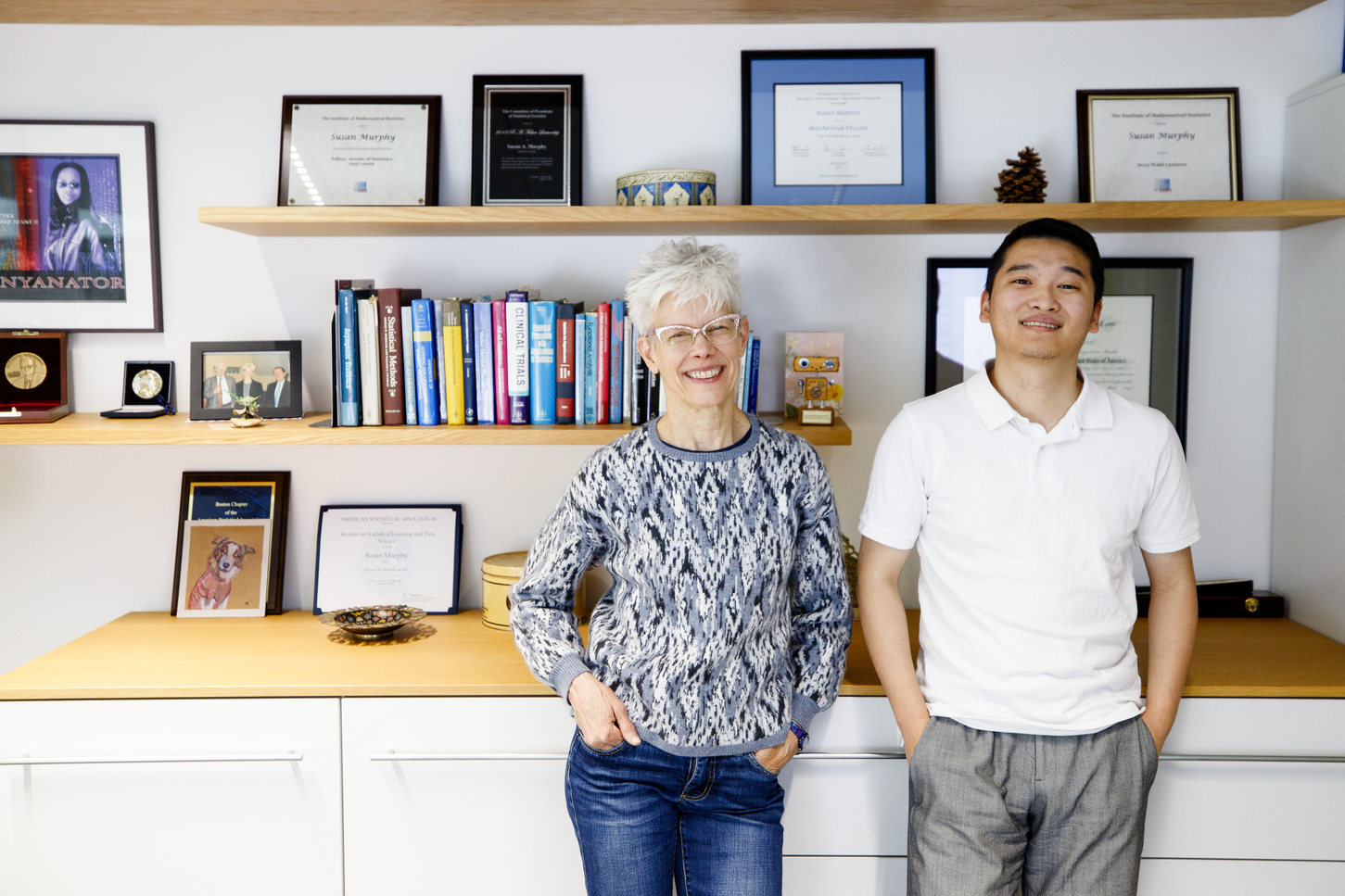Healthcare apps are revolutionizing the way patients manage their health and wellness by providing personalized support right at their fingertips. These innovative tools, often powered by mobile health technology, cater to a wide range of needs, especially for those undergoing treatment for chronic illnesses such as cancer. By utilizing reinforcement learning algorithms, healthcare apps offer dynamic and adaptive interventions that evolve based on the user’s behavior and requirements. This just-in-time assistance is particularly vital for cancer treatment apps, which can significantly enhance patient adherence to medication protocols and improve overall outcomes. Furthermore, the integration of features aimed at social support helps create a community that encourages patients to stick to their health goals, showcasing the transformative potential of personalized health apps in modern healthcare.
Digital health solutions, often referred to as mobile health applications, are becoming essential for patients as they navigate their health journeys. These tools, which include customized applications for chronic conditions like cancer and programs designed to improve medication adherence, leverage advanced algorithms to deliver tailored interventions. By utilizing adaptive technology, these platforms not only track user progress but also learn from past interactions, optimizing the support they offer in real time. Moreover, by incorporating social connections and incentives, such apps provide users with the motivation needed to maintain healthier lifestyles and achieve their therapeutic goals. This shift towards interactive health solutions underscores the importance of engaging patients in their own care through innovative technology.
The Impact of Mobile Health Technology
Mobile health technology, through its wearable devices and apps, has transformed how patients manage their health. As smartphones become ubiquitous, more individuals are leveraging these digital tools to monitor various health conditions, including chronic diseases and rehabilitation processes. By utilizing mobile health technology, patients can track their medication adherence, manage side effects, and receive reminders for appointments or medication dosages, streamlining what once were cumbersome tasks.
Additionally, mobile health technology empowers patients by providing access to health information and communities where they can share experiences and challenges. This connectivity enhances self-management, allowing users to engage more actively in their treatment protocols. For instance, cancer patients utilizing cancer treatment apps can establish personalized goals and track their progress, receiving immediate feedback that keeps them motivated and engaged in their health journey.
Harnessing Algorithms in Cancer Treatment Apps
The integration of sophisticated algorithms into cancer treatment apps marks a revolutionary step in personalized healthcare. By employing reinforcement learning techniques, these applications can adjust their recommendations based on real-time data from users. This dynamic customization ensures that patients receive support tailored to their unique experiences, thereby increasing the likelihood of adherence to treatment protocols. The adaptive nature of these algorithms allows for timely interventions that consider a patient’s medication schedule and side effects.
Moreover, cancer treatment apps that utilize just-in-time adaptive interventions provide psychological support precisely when patients need it most. By analyzing user interactions, these apps can identify patterns and predict when a patient might require additional encouragement or reminders. Such responsiveness not only aids patients in managing their medications but also fosters a sense of connection and support, essential for those dealing with the emotional and physical toll of cancer.
Personalized Health Apps: A Game Changer
Personalized health apps have emerged as a game changer in the healthcare landscape, offering tailored solutions that cater to individual needs and preferences. These apps employ data from user interactions to customize experiences, moving away from generic models traditionally seen in healthcare technology. For instance, a personalized health app may adjust reminders based on a user’s behavioral patterns, significantly enhancing adherence to medication regimens and lifestyle changes.
The ability to learn from past interactions means that personalized health apps can evolve and improve over time. Users benefit from recommendations that are not just relevant but also timely. This personal touch is particularly beneficial for chronic conditions where ongoing adjustments are critical, allowing patients to achieve better health outcomes while feeling supported in their journeys.
Just-in-Time Adaptive Interventions in Healthcare
Just-in-time adaptive interventions (JITAI) represent an innovative approach to healthcare delivery by focusing on providing support and resources exactly when patients need them. This timely intervention is particularly valuable for individuals dealing with complex health issues, as it allows for flexibility and immediate responses to changing circumstances. For patients undergoing intense treatments like stem cell transplants, the ability to receive personalized care in real-time can significantly enhance their recovery journey.
By implementing JITAI through mobile health applications, healthcare providers can deliver motivational prompts and reminders based on a patient’s daily activities and emotional state. These interactions are tailored to improve engagement with healthcare protocols, ultimately fostering better adherence to treatment regimens and lifestyle adjustments. As a result, patients experience a stronger sense of control over their health, decreasing anxiety and increasing the likelihood of successful recovery.
The Role of Healthcare Apps in Managing Chronic Conditions
Healthcare apps play a vital role in the management of chronic conditions by providing continuous support, information, and motivation to patients. These applications can empower users to take charge of their health by facilitating easy tracking of symptoms, medications, and overall wellness. Furthermore, many healthcare apps integrate features that encourage communication between patients and their healthcare providers, ensuring they receive timely advice and interventions.
By leveraging mobile health technology, healthcare apps are capable of processing vast amounts of user data and translating them into actionable insights. This is particularly significant for chronic disease management, as patients often require consistent monitoring and adjustments to their treatment plans. With personalized health apps, individuals can receive real-time alerts and health tips, creating a responsive care environment that enhances patient well-being.
Innovations in Reinforcement Learning Apps
Reinforcement learning apps represent a cutting-edge approach in the evolving landscape of digital health solutions. These applications utilize algorithms that learn from user interactions to improve their functionality and response over time. For patients managing health conditions, reinforcement learning can refine the advice they receive, making adjustments based on individual progress and needs, thus providing tailored solutions that can lead to enhanced health outcomes.
The implementation of reinforcement learning in healthcare apps, particularly those designed for chronic condition management, allows for a personalized experience that adapts to changing health needs. By continually analyzing data regarding medication adherence, user feedback, and treatment effectiveness, these apps deliver support that is relevant and impactful. As a result, users experience greater engagement, motivation, and success in their health management efforts.
Enhancing Caregiver Support Through Digital Tools
Caregivers play an essential role in the recovery and management of patients with chronic illnesses, particularly in programs like stem cell transplantation. Digital tools and mobile health applications can significantly enhance support for caregivers, providing them with the resources and information necessary to assist their loved ones effectively. Applications designed to facilitate communication between caregivers and healthcare professionals can streamline the management of medications and appointments, ultimately leading to better patient outcomes.
Moreover, caregiver-focused healthcare apps can offer emotional support and community connections, ensuring caregivers do not feel isolated in their role. By providing tools for tracking patient health indicators and sharing progress with the healthcare team, these apps empower caregivers with knowledge and confidence. As they engage with personalized health resources, caregivers can navigate the complexities of treatment protocols, contributing positively to the patient’s recovery journey.
Creating Community Connections in Healthcare Apps
One significant advantage of healthcare apps is their ability to foster community connections among users facing similar health challenges. Many personalized health apps include features that facilitate interaction between patients, allowing them to share experiences, tips, and encouragement. These connections can create a supportive environment that helps individuals feel less alone in their journeys, improving their emotional well-being.
Furthermore, community connections provided by these applications can enhance motivation and adherence to treatment regimens. For example, through group challenges or support networks available on the app, users can engage with peers who are also navigating similar health issues. This communal aspect not only reinforces accountability but also cultivates a sense of belonging, which is instrumental for long-term health management.
Future Directions for Mobile Health Technology
The future of mobile health technology looks promising with continued advancements in artificial intelligence, particularly within mobile applications. As algorithms become more sophisticated, healthcare apps will likely employ predictive analytics to anticipate a patient’s needs and preferences even before they express them. This proactive approach could revolutionize how patients manage their health, leading to a more efficient and effective healthcare landscape.
Moreover, the integration of augmented reality and wearable technology within mobile health applications may enhance user engagement and adherence further. This evolution could lead to immersive experiences that promote education and empower users to take charge of their health. As mobile health technology continues to develop, it will undoubtedly reshape the healthcare sector, providing innovative solutions that cater to the diverse needs of patients across the globe.
Frequently Asked Questions
What are healthcare apps and how do they benefit patients?
Healthcare apps, particularly those designed for cancer treatment and personalized health, offer tailored support to patients managing complex health conditions. These mobile health technologies utilize advanced algorithms to customize treatment reminders, provide educational resources, and facilitate communication between patients and caregivers, enhancing adherence to treatment protocols.
How do cancer treatment apps improve adherence to medication regimens?
Cancer treatment apps leverage just-in-time adaptive interventions and reinforcement learning algorithms to provide personalized support based on patient behavior. They send timely reminders and motivational prompts, adapting to individual needs to help patients stick to their medication schedules, significantly improving adherence rates.
What is the role of mobile health technology in modern healthcare?
Mobile health technology encompasses a range of healthcare apps that empower patients to manage their health more effectively. By utilizing real-time data and adaptive learning, these applications foster better communication with healthcare providers, facilitate medication adherence, and offer personalized health insights tailored to individual users.
Can personalized health apps help with mental health management?
Yes, personalized health apps can aid in mental health management by providing just-in-time adaptive interventions. These apps assess users’ emotional states and deliver customized support, such as motivational prompts or calming exercises, to help them navigate stressful situations and improve their overall mental well-being.
What are just-in-time adaptive interventions in healthcare apps?
Just-in-time adaptive interventions within healthcare apps are strategies designed to deliver personalized support precisely when it is needed. These interventions adapt based on user feedback and behavior, ensuring that patients receive timely guidance, which can significantly improve their health management and treatment adherence.
How do reinforcement learning apps enhance patient engagement?
Reinforcement learning apps enhance patient engagement by continuously learning from user interactions and tailoring their approach. This dynamic learning process allows the app to adjust reminders, suggestions, and motivational content, making the support more relevant and engaging, ultimately leading to better health outcomes.
What advancements are expected in future healthcare apps?
Future healthcare apps are expected to incorporate more sophisticated algorithms and AI technologies, enabling even greater levels of personalization and adaptability. Innovations may include enhanced integration with wearable devices, real-time health monitoring, and improved patient-caregiver communication, revolutionizing how healthcare is delivered and experienced.
How can mobile health technology support cancer patients during recovery?
Mobile health technology supports cancer patients during recovery by providing personalized health apps that manage medication schedules, offer emotional support through community features, and send timely health prompts. This tailored assistance helps improve compliance and quality of life during the challenging recovery phase.
What unique features do cancer treatment apps provide compared to traditional healthcare solutions?
Cancer treatment apps often offer unique features such as real-time data tracking, personalized feedback, adaptive learning capabilities, and social support networks, which traditional healthcare solutions may lack. This ensures that patients receive individualized care designed to meet their specific needs, enabling a more effective recovery process.
In what ways can personalized health apps transform chronic disease management?
Personalized health apps can transform chronic disease management by providing real-time monitoring, tailored health plans, and adaptive interventions. By utilizing mobile health technologies, these apps foster more effective patient engagement and adherence through customized support, reducing complications, and improving overall health outcomes.
| Key Points | Description |
|---|---|
| Personalized Support | New mobile apps use algorithms for real-time, tailored support to meet patients’ needs. |
| Target Audience | Cancer patients, particularly those undergoing stem cell transplants, and individuals managing cannabis use. |
| Reinforcement Learning | The apps use reinforcement learning algorithms to adapt and personalize user experiences. |
| Just-In-Time Intervention | Support is provided at optimal times based on changing user needs. |
| Family Involvement | Many cancer patients rely on family members to help manage medications. |
| Game Features | Interactive game elements in the apps foster collaboration between patients and caregivers. |
| Continuous Improvement | The apps learn from user interactions to improve their effectiveness over time. |
Summary
Healthcare apps are transforming the way patients manage their health by providing personalized support at critical moments. These innovative tools harness advanced algorithms and artificial intelligence to adapt to each user’s individual needs, offering real-time assistance that enhances medication adherence and lifestyle choices. With their focus on improving the patient-caregiver relationship and delivering tailored interventions, healthcare apps represent a significant advancement in patient care technology.



